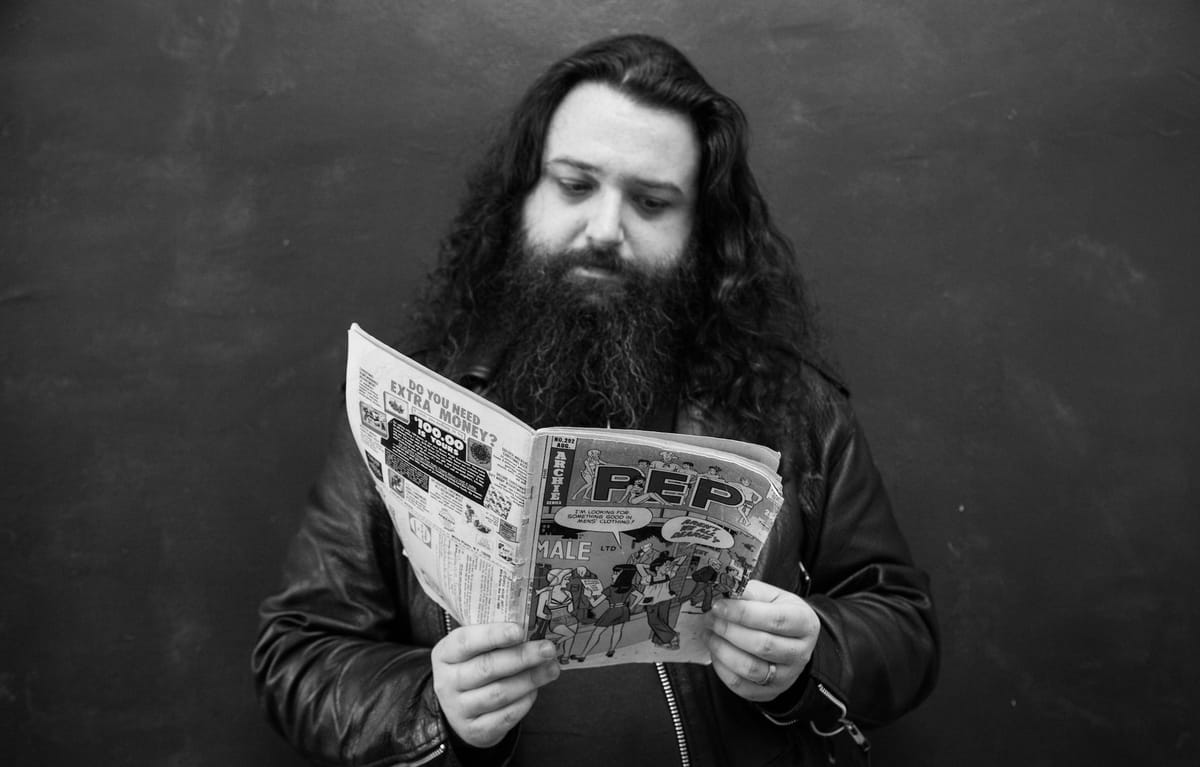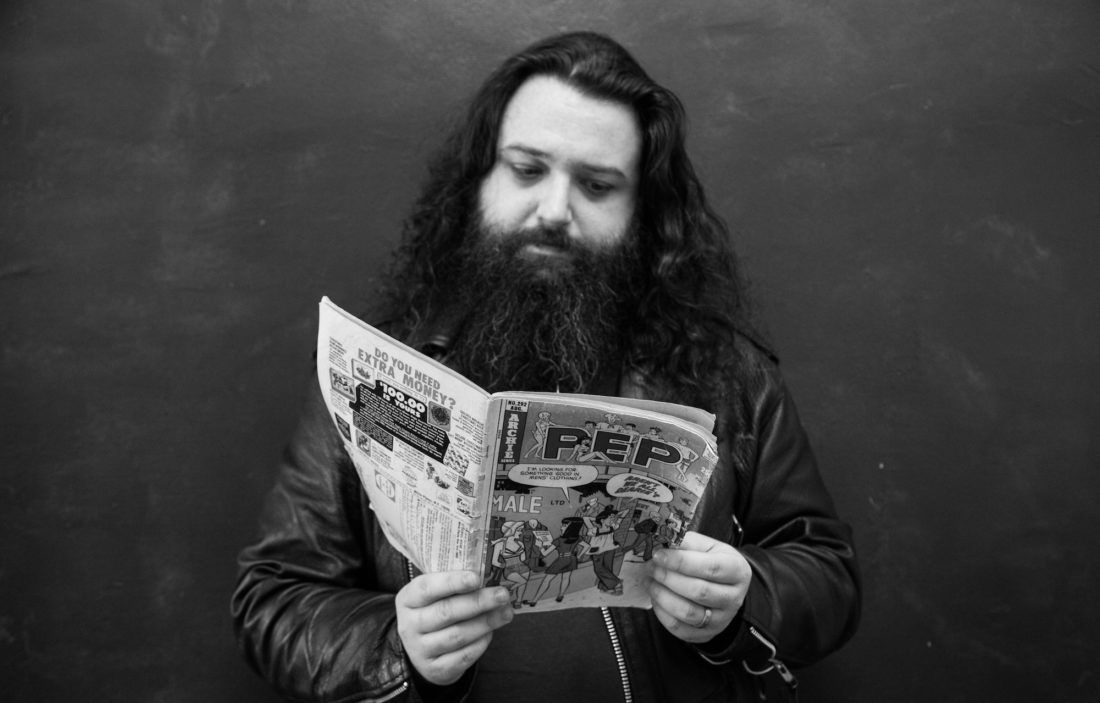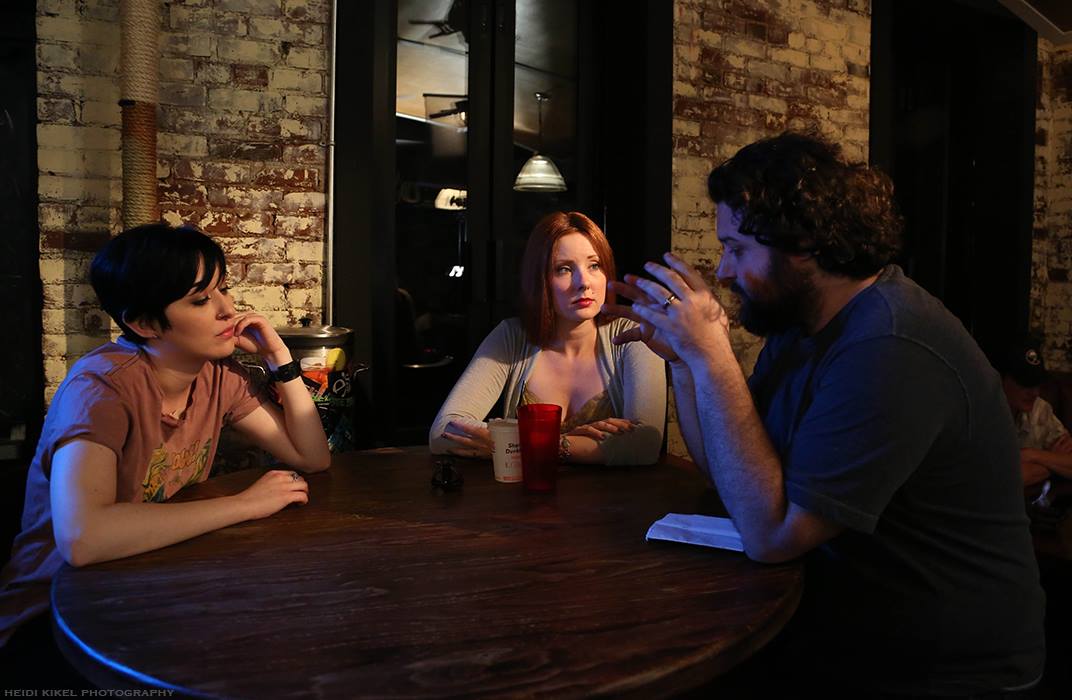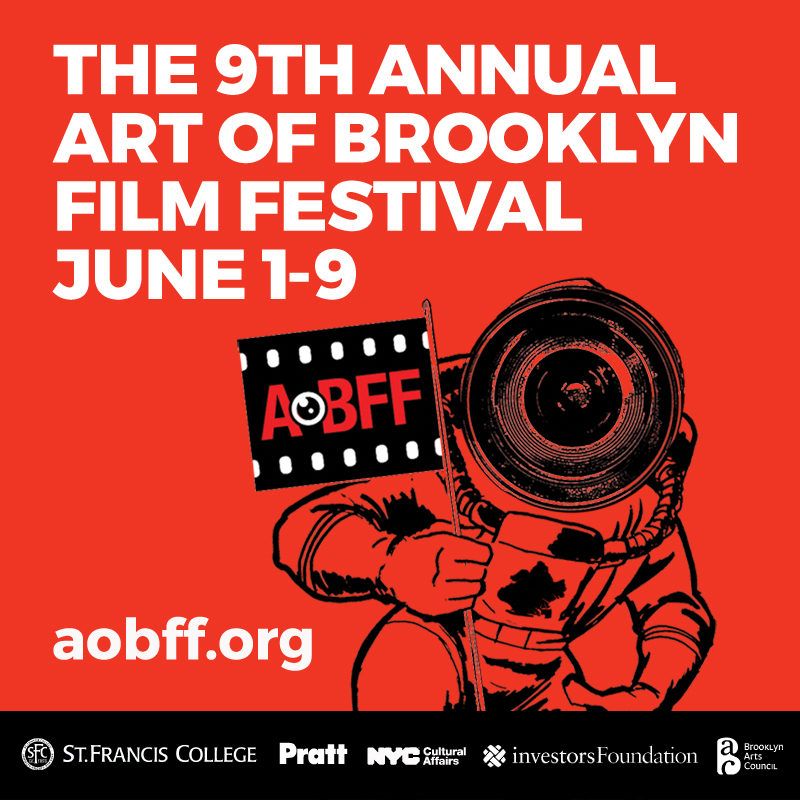Sean Mannion On Community & Curating The Art Of Brooklyn Film Festival

For the past nine years, the Art of Brooklyn Film Festival (AoBFF) has been showcasing independent films as former The L Magazine once put it, “For Brooklyn, by Brooklyn and about Brooklyn”. The festival opens on June 1st and runs through June 9 at locations as diverse as St Francis College, Pratt, P.S. / I.S. 30 and Sunset Park High School. June 2 offers a free screening at Sunset Park.
This year, AoBFF chose award-winning indie filmmaker, and Bed-Stuy resident Sean Mannion to be its Guest Festival Director. The winner of last year’s Outstanding Narrative Feature with his film, “Meme”, Mannion was delighted and seeing the 148 film submissions – the most ever – gave him a glimpse of what was going through the minds of the filmmakers as they created stories related to Brooklyn itself.
BKLYNER sat down with Mannion to learn more about his curation process and why Brooklynites should be excited for this year’s AoBFF. The interview is slightly edited for length and clarity.

BKLYNER: So, can you tell me a little bit about your background in film?
SEAN MANNION: I’m an independent filmmaker based here in Brooklyn. I’ve been making films for a decade now. I started out by going to New York Film Academy for screenwriting and spent the decade since then shooting short films, features, web series, and dabbling a little bit in every part of the process from screenwriting, producing, directing, a lot of post-production. Kind of all over the no-budget/low-budget independent scene filmmaking.
BKLYNER: How did you get to curate the AoBFF?
MANNION: First heard about Art of Brooklyn when a friend of mine screened there, Victoria Negri, who was last year’s guest director. Her feature screened there a couple of years ago and I had seen her talk about it. When I was looking for places to submit my feature a little over a year ago, “Meme”, that was one of the first places that came up. And then we screened there last year, and we won the Outstanding Feature award.
This past November, Joseph Shahadi [AoBFF Co-Founder/Executive Director] reached out and asked if I would be interested in meeting up and talking about potentially being this year’s guest curator. I started watching all the submissions at the beginning of January.
BKLYNER: What’s it like to watch movie after movie?
MANNION: It’s interesting because there are certain ways in which it is not at all different from my normal watching habits. We had a lot of short films submitted, a lot of short films are 20 minutes or less, maybe 30, so it’s a lot like watching half-hour TV or less. It was a bit like bingeing but it was different in that there’s not necessarily a connection between all these and also watching it a little more critically.
What really comes through, what’s interesting is seeing…you kinda get this window into what is sort of the dominant ideas that are sort of pervading. Like, this chunk of the culture in Brooklyn, what is everybody thinking about. Not from each individual film but the elements that come into each one. And sometimes, even though a film didn’t necessarily tie into the themes some were exploring more explicitly, they still had a piece of it, a nugget of it somewhere in there. Because there’s this, a look at what people think is important, whether they’re realizing it or not.
BKLYNER: From there comes a theme? It comes on its own, it’s organic?
MANNION: Yeah, the theme was, as you say, organic, and really unavoidable.
We saw a lot of people looking for community and finding community, whether that’s finding it by moving into a new space or entering a new space, meeting new people and making connections there, or being confronted there, but finding their place. I think it’s really obvious in some.
One that comes to mind, “Voice of the Monolith”, which is a musical short film, as it puts it, about black gentrification, about black people of different social backgrounds moving into neighborhoods in Brooklyn that sort of had kind of a different culture to them.
But there’s also films like, “Family Obligations”. It’s about a man who starts to take care of his uncle after his father dies, and meets his uncle’s neighbor and sort of gets involved in their lives. He’s an isolated person prior to that. And that’s a more explicit example of that.
We also got a whole block of short docs that is coming up called “Worlds Converging”. That block is all about communities within Brooklyn. One is on a beauty shop that serves women who wear hijabs. And another is about the bodega owners, and they are from Yemen and their experiences here in Brooklyn. Another is about a young girl from Azerbaijan, who wants to have a Western birthday party, running up against the traditions of her family.
So, there’s a lot of different angles on the same thing, community, finding community and intersections of these communities. And sometimes there’s examples like a short film called “Calms Casino”. It’s about this finding community, but the two main characters never meet each other. It’s basically videos online where they make a big meal and they video themselves eating it, and people watch it, and it’s a phenomenon apparently. The main character is someone who’s fixated on watching those videos. So, there’s a community there even though the people don’t occupy the same space.

BKLYNER: What does it tell you about Brooklyn, that the idea of community is explored so much this year?
MANNION: I think a lot of people are coming here – I’m a transplant – and I think many of the filmmakers are as well. They’re coming here looking for their place. Whether it’s a conscious thing or not, I think a lot of people are coming here looking for a place, looking for their community, looking for the people that want to care about the same things as they do. I think that’s a lot of what is going on. It’s just a lot of people looking or potentially finding it, the place where they belong.
BKLYNER: You think that’s what attracts them to Brooklyn? To find a community here?
MANNION: Yeah, I think at this point especially Brooklyn has this reputation now for being where things are happening, the arts are happening, where the film is happening – especially independent film. I think that’s why in particular these filmmakers are gravitating towards it. Whether they’re actually living here, or they’re just shooting here, or just identifying themselves with Brooklyn in some sense.
I think Brooklyn, in particular, has a reputation now, particularly outside, for being a place for these people. The videos that were coming out before, the television shows that have been about or around Brooklyn in the mainstream, just sort of attracting people to this space. Which I think is, when I’ve been talking with Joseph Shahadi, that really reflects what he has said to me about why it’s so important to have the Art of Brooklyn Film Festival to be a Brooklyn-centered film festival. Right now, there’s an art movement that’s coming out of Brooklyn, it’s been growing and has been for some time. It’s not slowing down. People are identifying with this place and creating.
BKLYNER: Do you have the submissions broken down by who lives here or – ?
MANNION: People identified – mostly identified – that they lived here. That they were either currently or formerly residents of Brooklyn. There were a couple where the primary filmmaker and director didn’t live here, but the bulk of their cast and crew were. But I would say more often than not, the majority of the people involved in the films either currently or formerly lived in Brooklyn.
When it came to curating and making the decision, when I looked at everything, the consideration of its connection to Brooklyn was sort of after the considering of the film on its own. Because I think the premise of Brooklyn being seen as where art is being created, and artists live, and people might not live here, but they feel a strong affinity to it.
BKLYNER: How does mental health tie into the community narrative?
MANNION: There are several films that interface with mental health issues, including “Baggage” which is a very interesting short film about sci-fi, a surrealist film about people are often forced to display the emotions they might not feel for cultural reasons. Like, gotta go out and look happy even when you’re not. There’s also a film about eating disorders, particularly about a man with eating disorders. Not a typical example. It’s called “You Look Great”, it’s a dark comedy.
One of the common themes in the films that were related to mental health was that there’s definitely a sense of isolation from the community. And you see that in larger conversations about mental health and how community plays a part, or lack of community plays a part. People are building a community around these shared experiences of the mental health issues they may have. So you see a lot of people coming together with depression, anxiety, and I think what we received reflects that to a degree. People feeling that they can talk about these things because there is a community that cares about it, and expressing where there isn’t one.
BKLYNER: Why would community matter for Brooklynites in general?
MANNION: I would speak to this mostly from my own experience, and it’s coming from Alaska. It’s very different. I think that there’s more opportunity to find a community here. It’s harder to separate the culture in Brooklyn and New York, it’s just difficult to be separate. Most of us live in apartments, most of us don’t drive. If you’re going to exist in Brooklyn, you have to be among people on some level, even if you’re an introvert.
Back home in Alaska, going to work was: I would get out of my house, get into my car, take my car to work, get out of my car and go to work. There was no in-between. I would drive by other people and no interaction. Here, I have to walk to the bus. There are people on the way. There are people I have to acknowledge. I’m not isolated. I am part of the community. I’m among people, I see what’s going on. Same with the subway. You can’t not be in the community. It’s inevitable, it’s unavoidable.

BKLYNER: Why should people care about the Art of Brooklyn Film Festival?
MANNION: Because it is so focused on the Brooklyn community. It’s less about bringing films to Brooklyn, and more about celebrating the films of Brooklyn. I think you see more of Brooklyn in it. I think it will feel emotionally familiar. I think it would be the sort of thing where you think, ‘I understand’ where that person is coming from because it’s from people who are from here or have been here and care about the sort of thing that matters here.
BKLYNER: Do you expect more people to attend than in previous years?
MANNION: I hope so. I would love it to be even more successful this year and get flocks of people. All the filmmakers are saying a lot with the feelings that are out there. I think there’s a lot of opportunity around the discussion. I think we’ve got some exciting films that are really about communities here. I hope that people are interested not just about them, but also about their fellow Brooklynites because we got really an interesting spread of that, these different parts of Brooklyn.




